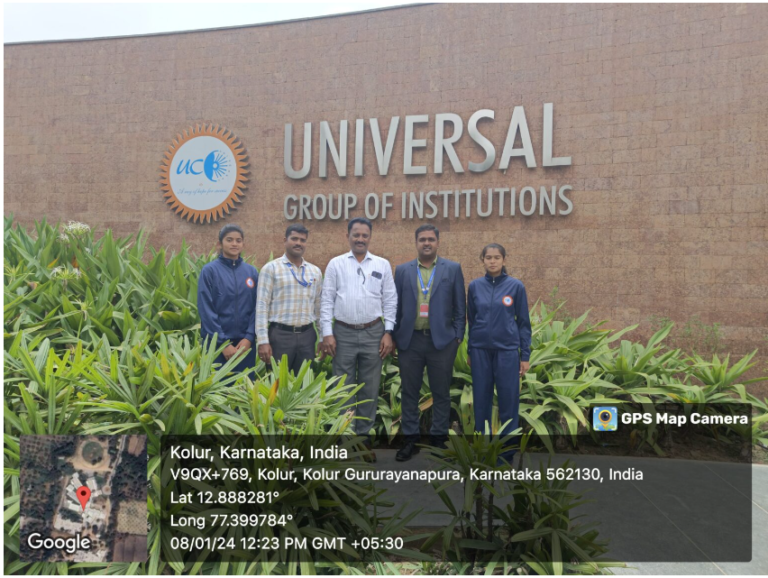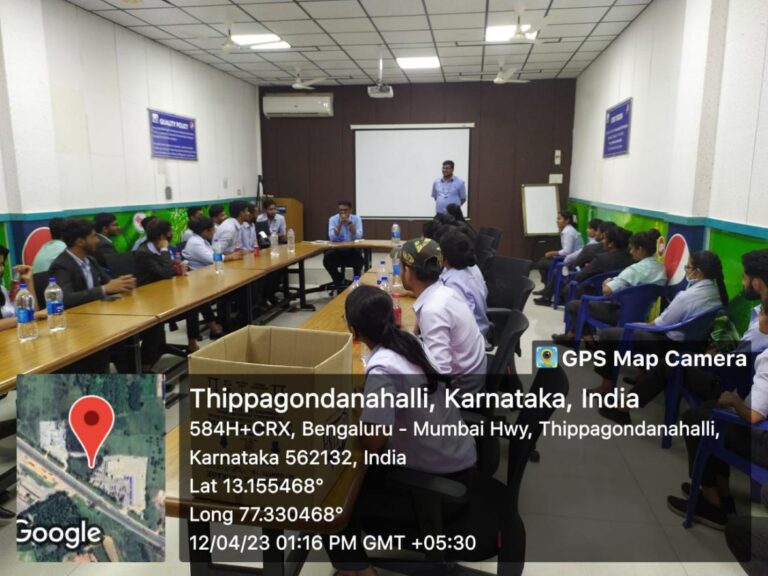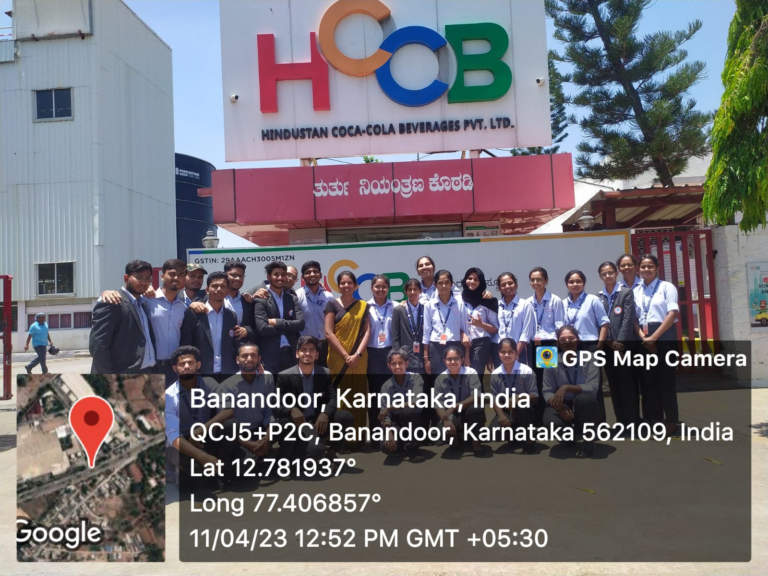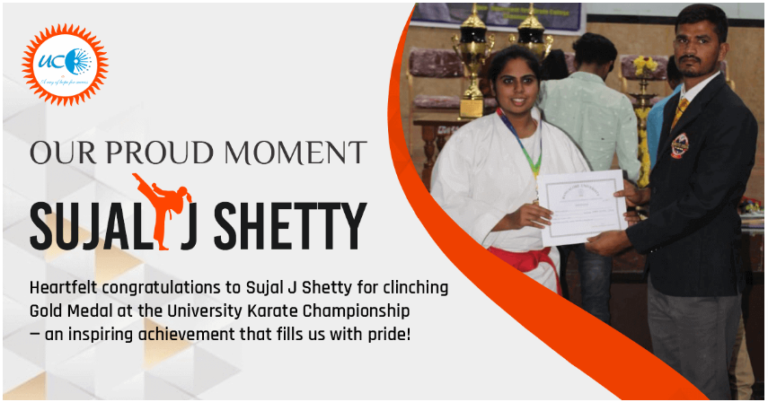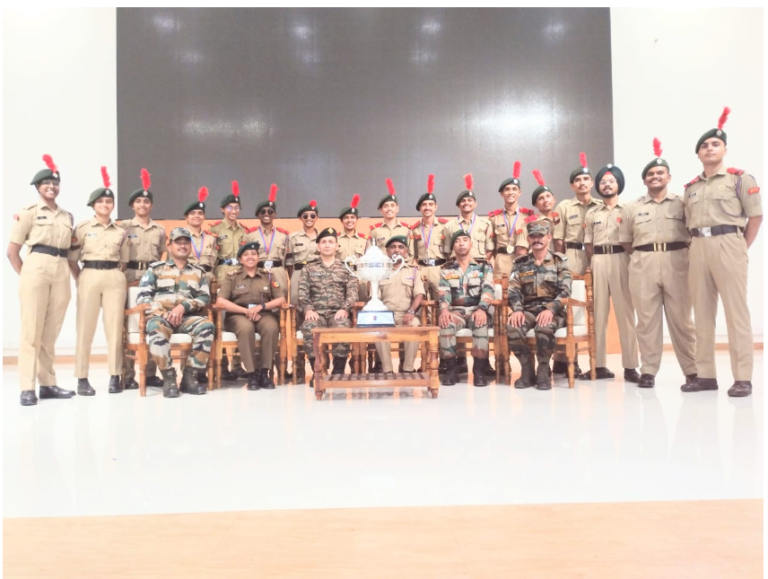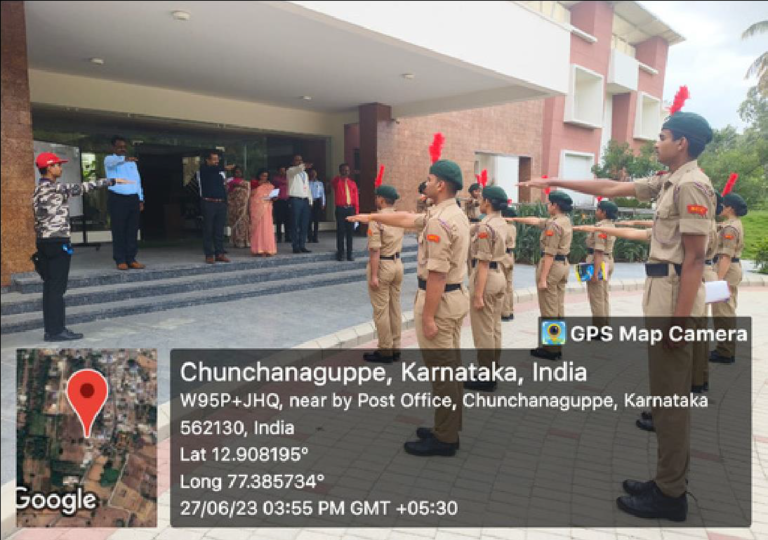FIELD VISIT REPORT
On 29th September 2022, 24 4th n semester Political Science students with 2 faculties from The Department of Political Science, Universal School of Administration, Koluru, Lakkayanapalya, Tavarekere Hobli, Ramohalli, Bangaluru- 560074, Visited Chunchanakuppe Grama Panchayat which is governed by the Bangalore Urban District Administration to know the structure and functions of Grama Panchayat, source of Gram Panchayat and how they will utilize the funds towards the people of concerned villages, we arrived there at 2:00 pm.

WHAT IS GRAMA PANCHAYAT?
Gram Panchayat consists of a village or a group of villages divided into smaller units called “Wards”. Each ward selects or elects a representative who is known as the Panch or ward member. The members of the Gram Sabha elect the ward members through a direct election. The Sarpanch or the president of the Gram Panchayat is elected by the ward members as per the State Act. The Sarpanch and the Panch are elected for five years. Gram Panchayat is governed by the elected body and administration. The secretary is normally in charge of the administrative duties of the Gram Panchayat. Gram panchayat is a basic village governing institution in Indian villages. It is a democratic structure at the grassroots level in India. It is a political institution acting as the cabinet of the village. The grama Sabha work has general body of the grama panchayat.
Objectives of Panchayat Visit: –
- To encourage students to become a civil servant.
- To expose students, meet the practical challenges in the Local self-governments.
- To let the students interact with members of Gram Panchayat.
- To build self-confident and proactive approaches.
- To organize awareness campaigns at the field level about socio-politico status and Welfare programs launched by the Government for the development of rural areas.
- To undertake research works to try out new initiatives as well as to create a demonstration effect.
- The main objective of conducting this field trip for students is to reinforce experiential and contextual learning. Field trips are a way of enhancing classroom learning by making real-world connections. Field trips expose students to different lifestyles, places and eras.
- To reinforce experiential and contextual learning.
- To expose the students to different lifestyles, places and eras.
FIELD OBSERVATION: –
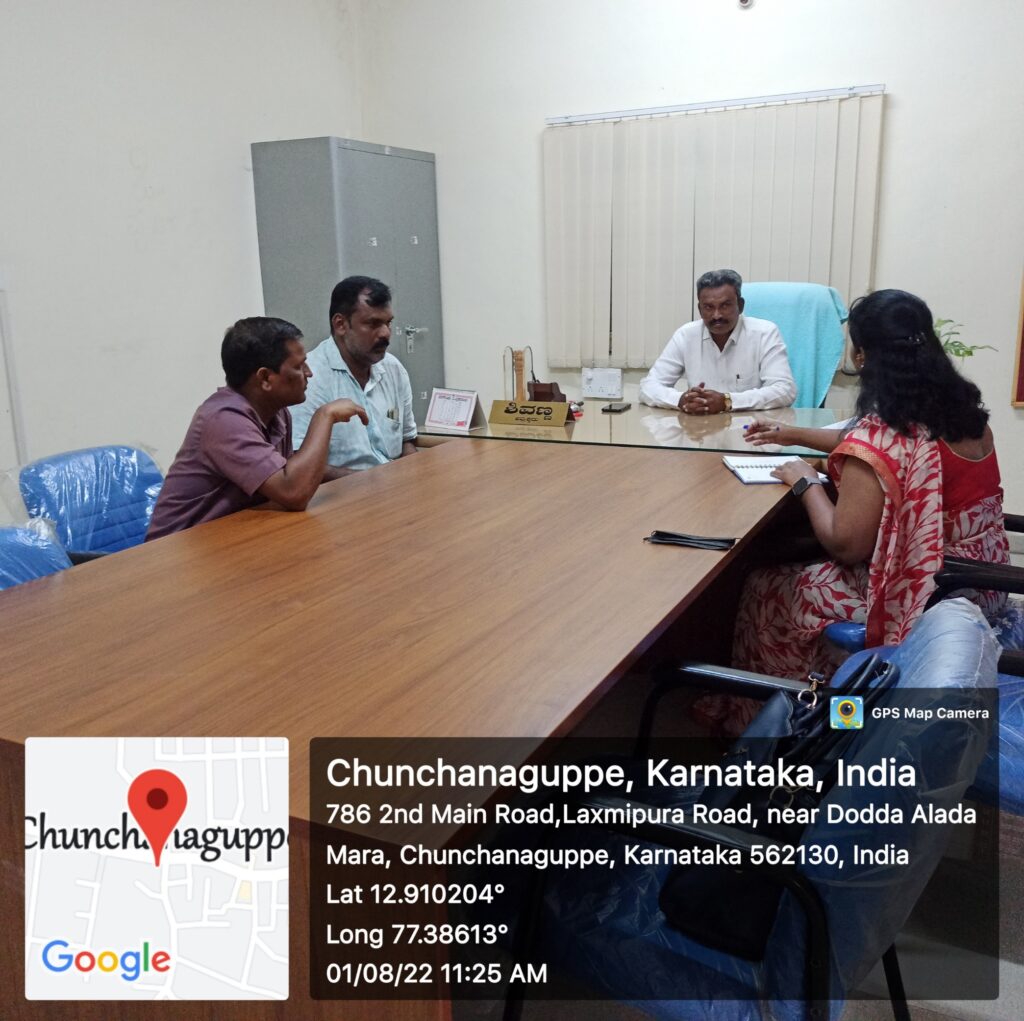
Panchayat President Mr. Shivanna
All the students engaged in the session enthusiastically, raised various questions, and learned how a rural panchayat raj institution operates. The PDO (Panchayat Development Officer) Mr PURUSHOTTAM briefed the students about the Objectives and missions of Rural Panchayat, which include empowering the rural population to participate in rural development programmes for improving their quality of life and providing rural infrastructure and socio-economic growth opportunities for the poor people in rural areas.

Students asked questions about the source of funding, employment prospects offered by the panchayat, institutional hierarchy, power devolution, e-governance, and the panchayat developmental activities. The Panchayat President Mr. Shivanna and PDO delivered brief responses to each topic. The PDO, an executive officer, and the President, an elected representative of the people, are in charge of the Panchayat Raj Institution at the rural level. Together, they improve the effectiveness of public resource management and the quality of service provided by Grama Panchayats by local priorities. In chunchanguppe grama panchayat all are educated, mainly school age group children.

They estimate that Karnataka has 6022 rural panchayats, which account for 70–80% of the rural population. There are two different sources of funding; Varga 1, which refers to self-financing through local taxes, fines, and penalties, is the main source. The Chunchanguppe Panchayat receives about 3–4 crores from this source each year. The Central Government’s distribution of funds per the recommendations of the 15th Finance Commission is the secondary source. Unfortunately, they claimed, the State Finance Commission isn’t performing to its full capacity. When asked about the employment opportunities provided, the PDO stated that while many residents are self-employed in a variety of other industries and the panchayat falls under a semi-urban location, programmes like MGNREGA are not very effective in the area.
Water, electricity, and sanitation are given the utmost importance as part of development operations in their neighbourhood, with SC and ST people being entitled to 25% of the Action Plan’s resources. Other Developmental Activities include Removing barriers in the development of basic amenities, improving rural sanitation, creating awareness about rural energy and disseminating innovative technology, providing safe and adequate drinking water to all the rural habitations, Provide Basic facilities to Anganwadis, Local Schools and households. It Is important to highlight that the Chunchanguppe Panchayat is entirely paperless and digital. Additionally, it maintains a library with a variety of resources, including those for academic studies, literature, and competitive exams. It also contains a few internet-enabled computers that can be utilised as needed by the people. Finally, they discussed some of the administrative difficulties they have, such as a lack of funding, underutilizing the library, and a lack of local students enrolling in post-secondary programmes.

The development of multi-pronged strategies, which involve effective collaboration with private entities, public participation, and government backing, is said to be the best way to address these difficulties, according to PDO. Positively, the faculty and students of the Universal Group of Institutions assured that the college will support the panchayat’s endeavours for the total development of the Chunchanguppe village. Finally, Assistant professors in political science Ms.Akshatha Poovappa N, Mr. Chidananda Sringeri, and some students shared their positive impressions and expressed their sincere gratitude to the Panchayat Administration for providing the chance to learn something new and better.

